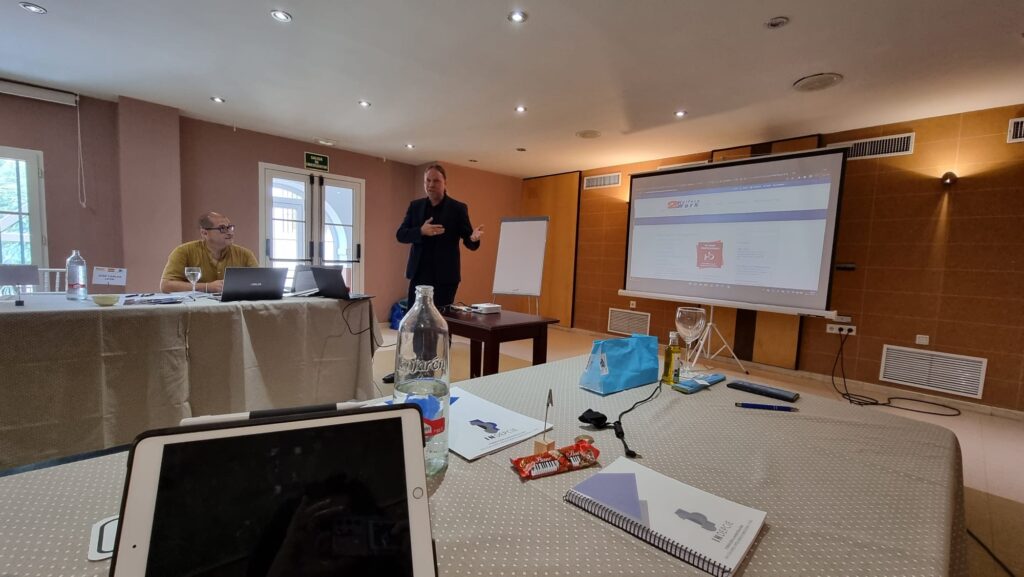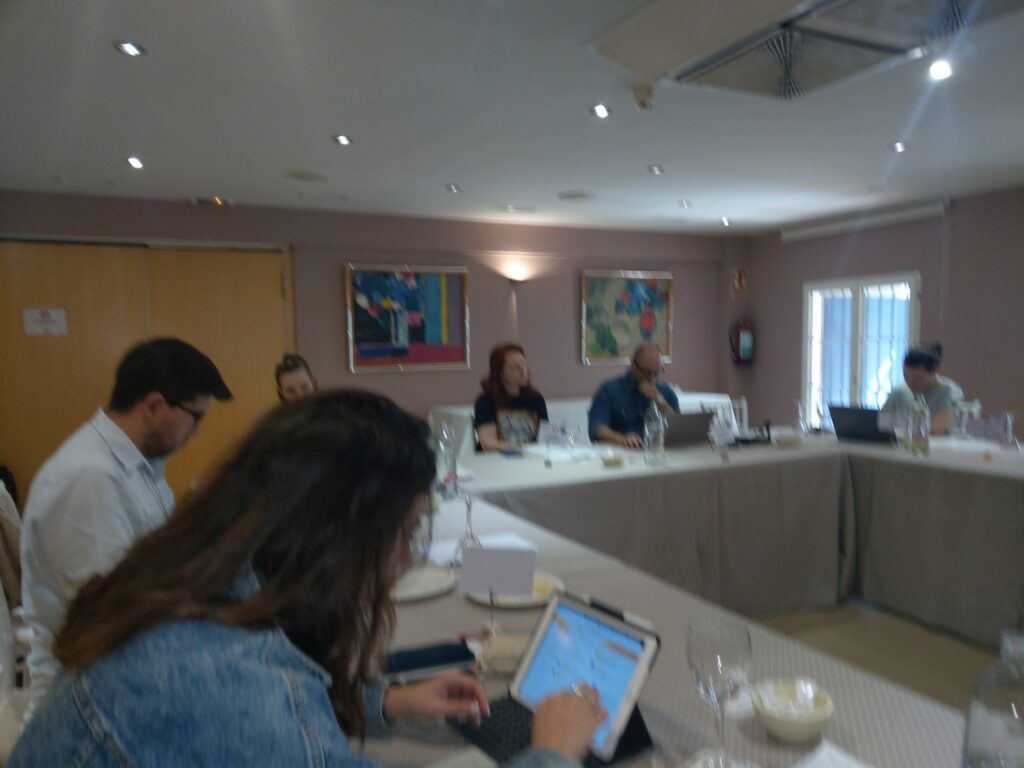Successful Kick off Meeting EMO2C Córdoba

According to Eurostat, in October 2020 3.1 million young persons (under 25) were unemployed in the EU (a rate of 17.5%). These figures take on a dramatic tone in Mediterranean countries such as Spain, where the rate reaches 40.4%, or more than 30% in Greece or Italy, while Lithuania (27.1%) also suffer from this scourge above the EU average (17.5%). This is in any case a dangerous and particularly unacceptable figure for such an important population group. These numbers are even harsher among low-skilled young people, many of whom joined the labour market in the midst of the economic recession of the past decade and have suffered even more due to the negative effects of the Covid 19 pandemic. The European partnership EMO2C offcially kicked off face-to-face in Córdoba, Spain on May 30th-31st 2022.

EMO2C Vision
The vision of our project is to strengthen the emotional and social competences of the target groups, so that this personal empowerment serves as a basis for the development of technical and professional skills. The sum of both will allow them to face their return to the labour market with more guarantees.
EMO2C must be approached from a transnational perspective, because it affects millions of young people across the EU, a luxury that our society cannot afford. Thus, the main objective of EMO2C is to strengthen emotional and social competences of the target group, so that this personal empowerment serves as a basis for the development of technical and professional skills. The sum of both will allow them to face their return to the labour market with more guarantees.
EMO2C Córdoba Kick Off Meeting
On May 30th we officially kicked of face-to-face in Córdoba. All EMO2C partners were attending. The partnership is formed by several entities from different countries. INDEPCIE from Spain (coordinator), AKMI from Greece, Efektas Group from Lithuania, VAEV from Austria, Igor Vitale International from Italy and the Dutch Foundation of Innovation Welfare 2 Work from the Netherlands. Each EMO2C partner served their organisation presentation with a personal touch.

On day 1 the partnership discussed about the identification and definition of the 12 essential social-emotional skills for teaching in E2C. The training system for educators has to be a very practical approach, but also with practical nuances on how to address these competences in the classroom. A survey is developed and already filled. These results will be finetuned and improved with EMO2C expert focus groups. Each partner presented their project tasks and objectives to achieve.
QAP
On day 2 we discussed all the phases of the project, such as the surveys which have to be done in the next phase of the project, the EMO2C tools, the launch of the website (July 2022) and the development of the EMO2C platform. DFW2W is in charge of the quality assurance. Although we are all very sure the quality of the EMO2C project will be very good, it’s important to have a good framework of internal and external evaluation process. Furthermore project activities and results will also be evaluated.

EMO2C Specific Goals
The specific EMO2C goals are:
- To give visibility to the purpose and work of E2C, both of those established as well as of the public and private entities that carry out the same task
- Raise awareness of the importance of IE and soft skills in the target group
- Develop concrete and effective solutions to the problems of early school leaving and youth unemployment
- Incorporate specific measures to ensure access for young people at risk or in a situation of social exclusion
- Enable the development of the E2C model and its economic sustainability in the EU
- To obtain European recognition of the E2C model as an essential element in the fight against early school leaving and youth unemployment
- To promote international cooperation in this field
- Enable young people with lack of skills or qualifications to successfully gain access to education programmes or to the labour market
- Strengthen the competences and qualifications of E2C educators
